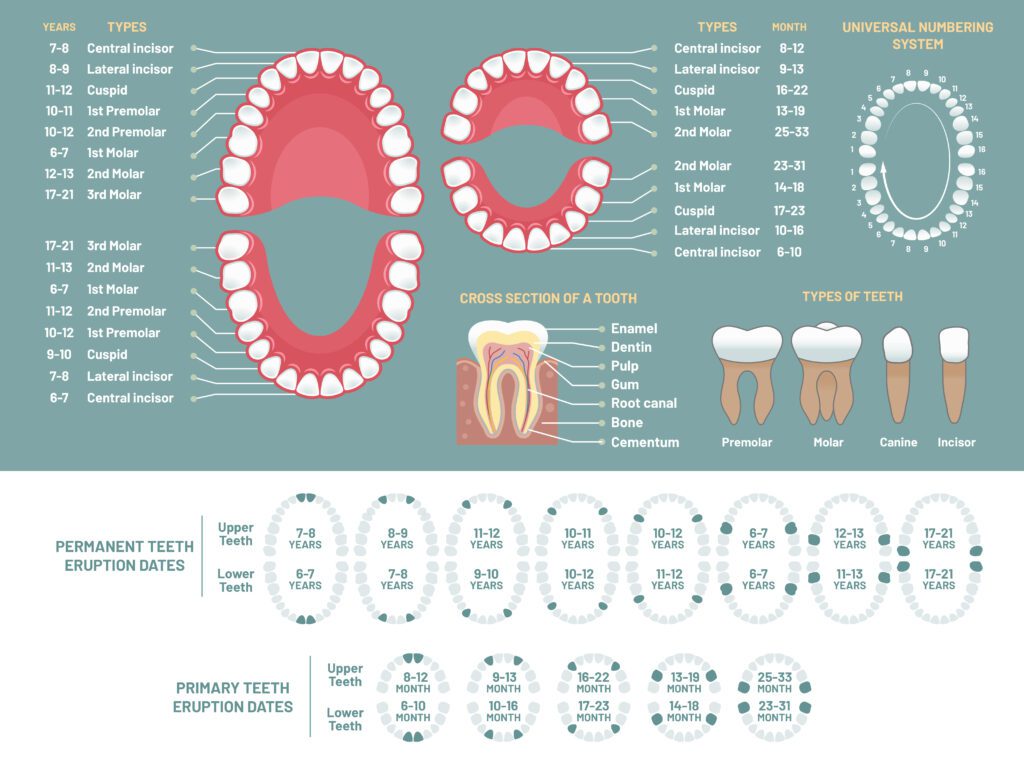Are you experiencing persistent health issues, wondering if it could be Crohn’s disease or irritable bowel syndrome (IBS)? This brief quiz aims to shed light on your symptoms and guide you toward a better understanding of your gut health. As we delve into the distinctions between Crohn’s Disease Quiz and IBS, this article offers a concise and informative journey. Let’s explore the symptoms, diagnostic approaches, and available resources to help you take the first step towards improved well-being. If you’ve ever questioned your digestive health, this article is your gateway to clarity.
Self Evaluation Quiz:
Digestive issues can be quite puzzling and the initial step to comprehend your situation’s to identify the symptoms. This self evaluation quiz aims to highlight signs linked to Crohns disease and IBS.
- Fever and General Health:
- Fever Frequency: Assess how often you experience feverish episodes, as this can be indicative of underlying health issues.
- Appetite and Weight:
- Appetite Reduction and Weight Loss: Evaluate if you have observed a decrease in appetite and a corresponding loss of weight, as these are common manifestations.
- Iron Levels:
- Severe Iron Deficiency: Consider whether you have been grappling with severe iron deficiency, a potential marker of certain gastrointestinal conditions.
- Oral Health:
- Mouth Sores Frequency: Take note of the frequency of mouth sores, as these can be associated with inflammatory bowel diseases.
- Digestive Issues:
- Stomach and Digestive Problems Frequency: Reflect on the frequency of stomach and digestive problems, such as persistent discomfort or irregular bowel movements.
- Skin Conditions:
- How often do you have skin rashes? This information could give us insights, into your health.
- Stool Examination:
- Presence of Blood in Stool: Be attentive to any instances of blood in your stool, as this can be a crucial symptom requiring prompt attention.
- Liver Function:
- Experience of Liver Issues: Consider if you have encountered any issues related to liver function, as these can be linked to certain gastrointestinal disorders.
- Rectal Health:
- Rectal Bleeding Frequency: Assess the frequency of rectal bleeding, as this can be indicative of various digestive conditions.
- Abdominal Discomfort:
- Severe Abdominal Cramps Frequency: Reflect on the occurrence of severe abdominal cramps, a symptom that may require further investigation.
- How often do you have skin rashes? This information could give us insights, into your health.
By honestly addressing these questions, you pave the way for a clearer understanding of your symptoms. The next sections will delve into the specifics of IBS and Crohn’s disease, aiding you in interpreting your quiz results and taking informed steps toward better digestive health.


Differentiating IBS and IBD:
Understanding the nuances between Irritable Bowel Syndrome (IBS) and Inflammatory Bowel Disease (IBD) is crucial for accurate diagnosis and effective management. Let’s explore the key aspects that distinguish these gastrointestinal conditions.
- Overview of IBS and IBD:
- IBS is a condition of the system that causes discomfort such, as pain bloating and changes in bowel movements but without any visible physical damage. On the hand IBD refers to inflammatory conditions like Crohns disease and ulcerative colitis that cause inflammation and harm to the digestive tract.
- Symptoms and Characteristics;
- Ulcerative Colitis; This condition usually affects the colon and rectum resulting in symptoms, like diarrhea, abdominal pain and a sense of urgency.
- Crohns Disease; It can affect any part of the tract and leads to symptoms including abdominal pain, diarrhea, weight loss and fatigue.
- Diagnosing IBS:
- IBS Blood Test: A blood test may be recommended to rule out other conditions, providing valuable information about markers associated with IBS.
- Diagnosing IBD:
- Antibody Blood Test for IBS: In the case of suspected IBD, an antibody blood test may be conducted to identify specific antibodies associated with these inflammatory conditions.
Understanding these distinctions is crucial for accurate diagnosis. If your quiz results indicate potential concerns, consulting a healthcare professional is essential. The subsequent sections will provide deeper insights into IBS and Crohn’s disease, assisting you in interpreting your symptoms and taking appropriate steps for your well-being.
see also: ZENITH WEIGHT LOSS | ELEVATE YOUR HEALTH, TRANSFORM YOUR BODY
Understanding IBS:
Irritable Bowel Syndrome (IBS) is a common gastrointestinal disorder that can significantly impact daily life. Let’s delve into the various aspects of IBS, from its general overview to available treatments.
- IBS Overview:
- IBS is characterized by a cluster of symptoms, including abdominal pain, bloating, gas, and changes in bowel habits. It’s essential to note that IBS does not cause structural damage to the digestive tract.
- Post-Infectious IBS:
- In some cases, IBS symptoms may develop after a gastrointestinal infection. This is known as post-infectious IBS, where an initial infection triggers persistent digestive issues.
- Diarrhea & IBS:
- Some individuals with IBS experience diarrhea as a predominant symptom. Understanding the relationship between diarrhea and IBS is crucial for effective management.
- SIBO & IBS:
- Small Intestinal Bacterial Overgrowth (SIBO) is a condition where there’s an abnormal increase in bacteria in the small intestine. This can contribute to IBS symptoms and requires specific interventions.
- Diets for IBS:
- Certain dietary approaches, such as the low FODMAP diet, have shown efficacy in managing IBS symptoms. These diets focus on reducing fermentable carbohydrates that can contribute to digestive discomfort.
- Treatments for IBS:
- Treatment strategies for IBS vary and may include dietary modifications, medications to alleviate symptoms, and stress management techniques. Seeking guidance from a healthcare professional is crucial for personalized treatment plans.
- Personalized Nutrition Guidance:
- Many individuals with IBS benefit from personalized nutrition guidance. Working with a healthcare provider or a dietitian can help tailor dietary recommendations to address specific symptoms and improve overall digestive health.
Navigating the complexities of IBS requires a tailored approach, and the subsequent sections will guide you through diagnostic tools and considerations for managing IBS effectively. If your quiz results have raised concerns, understanding IBS is a crucial step toward informed decision-making regarding your health.
Exploring Crohn’s Disease:
Crohn’s disease is a chronic inflammatory condition that affects the digestive tract. Understanding its nuances, symptoms, and available treatments is essential for those who suspect they may be dealing with this condition.
- Crohn’s Disease Overview:
- Crohn’s disease is a form of inflammatory bowel disease (IBD) that can impact any part of the gastrointestinal tract. It involves chronic inflammation that may lead to symptoms ranging from mild to severe.
- Symptoms of Crohn’s Disease:
- Common symptoms include abdominal pain, diarrhea, weight loss, fatigue, and, in some cases, rectal bleeding. The variety and intensity of symptoms can vary widely among individuals.
- Diagnosis and Treatment of Crohn’s Disease:
- Diagnosis often involves a combination of medical history, physical examination, imaging studies, and endoscopic procedures. Treatment approaches may include medications to control inflammation, lifestyle modifications, and, in some cases, surgery to address complications.
Understanding the specifics of Crohn’s disease is crucial for informed decision-making and effective management. If your quiz results indicate potential concerns, it’s imperative to consult with a healthcare professional for a comprehensive evaluation and diagnosis.
The following sections will provide further insights into the distinctions between IBS and Crohn’s disease, helping you interpret your symptoms and take appropriate steps for your well-being. If you suspect you may be dealing with Crohn’s disease, seeking prompt medical attention is essential for timely intervention and personalized treatment.
see also: THE ALPINE ICE HACK WEIGHT LOSS: CHILL YOUR WAY TO FITNESS!
Comparing IBS and Crohn’s Disease:
Navigating the differences between Irritable Bowel Syndrome (IBS) and Crohn’s Disease is essential for accurate self-assessment and seeking appropriate medical guidance. This section will delve into the distinctions between these conditions, offering clarity for those exploring their digestive health.
- IBS vs. Crohn’s Disease:
- While both IBS and Crohn’s disease can manifest with digestive symptoms, they differ fundamentally in nature. IBS is a functional disorder, primarily characterized by symptoms without structural damage, whereas Crohn’s disease is an inflammatory condition that involves chronic inflammation and potential structural damage to the digestive tract.
- Identifying Your Symptoms:
- As you reflect on your quiz results and symptoms, consider the nature and intensity. IBS symptoms often revolve around abdominal discomfort, changes in bowel habits, and bloating, while Crohn’s disease symptoms may include more severe manifestations like weight loss, rectal bleeding, and systemic symptoms such as fatigue.
- Interpreting Your Results:
- Understanding the specific symptoms you experience is key to interpretation. Frequent diarrhea, abdominal cramps, and bloating may align more closely with IBS, while persistent inflammation, rectal bleeding, and significant weight loss could signal a more serious condition like Crohn’s disease.
- Takeaway:
- If your self-assessment points to mild, functional symptoms, IBS may be a more likely explanation. However, if your symptoms are persistent, accompanied by systemic issues, or if you have concerns about structural damage, consulting with a healthcare professional for further evaluation is crucial.
This section serves as a bridge between self-assessment and seeking professional guidance. Understanding the nuances between IBS and Crohn’s disease enables you to make informed decisions about your health. The subsequent sections will guide you on booking appointments with healthcare professionals, interpreting results, and exploring ways a dietitian can contribute to your digestive health journey.
Seeking Professional Guidance:
As you navigate the complexities of digestive health, consulting with a healthcare professional is a crucial step in obtaining accurate diagnosis and tailored guidance. This section will outline the process of seeking professional help and understanding the roles of healthcare providers in managing digestive conditions.
- Booking an Appointment with a Dietitian:
- If your self-assessment suggests potential concerns or if you’ve received a diagnosis of IBS or Crohn’s disease, scheduling an appointment with a registered dietitian is a proactive step. Dietitians specialize in crafting personalized nutrition plans that can help manage symptoms and improve overall well-being.
- How a Dietitian Can Help:
- Dietitians play a vital role in the management of IBS and Crohn’s disease. They can assess your dietary habits, identify triggers that exacerbate symptoms, and create a customized plan that aligns with your nutritional needs while minimizing discomfort.
- References:
- Reliable sources, including medical journals, reputable websites, and healthcare professionals, can provide valuable information to supplement your understanding. Keep a list of references to discuss with your healthcare provider during appointments.
- Related Posts:
- Explore additional resources, such as blog posts, articles, and forums, to gain insights from others who have experienced similar digestive health challenges. However, always prioritize information from trustworthy sources.
- How to Interpret Results:
- When consulting with healthcare professionals, it’s essential to understand the results of diagnostic tests and assessments. Ask questions, seek clarification, and actively engage in discussions to ensure a comprehensive grasp of your condition.
This section emphasizes the importance of involving healthcare professionals in your journey toward better digestive health. Whether it’s consulting with a dietitian for nutritional guidance or discussing test results with a gastroenterologist, professional input is invaluable. The subsequent sections will provide references, related posts, and practical tips for managing specific conditions, guiding you towards optimal digestive well-being.
Additional Resources:
To supplement your understanding of digestive health and empower your journey towards well-being, this section provides a curated list of additional resources. From reliable references to practical tips, these resources offer comprehensive support.
- References:
- Utilize authoritative sources such as medical journals, healthcare institutions, and reputable websites. Reliable information is crucial for building a solid foundation of knowledge about digestive conditions.
- Related Posts:
- Explore articles and blog posts that delve into personal experiences, tips, and advice from individuals who have managed or are managing similar digestive health challenges. Peer insights can provide valuable perspectives and practical strategies.
- Tips for Managing Crohn’s Disease:
- If you’re navigating a diagnosis of Crohn’s disease, seek guidance on effective management strategies. From dietary adjustments to lifestyle modifications, practical tips can enhance your quality of life.
- Tips for Managing Ulcerative Colitis:
- If ulcerative colitis is part of your health journey, specific tips tailored to managing this condition can be instrumental. Learn about effective coping mechanisms and lifestyle adjustments to alleviate symptoms.
- What’s Causing Your Food Intolerance?:
- Explore resources that address common issues like food intolerance. Understanding the triggers and exploring potential solutions can contribute to improved digestive health.
- How To Heal An Anal Abscess Quickly:
- For those dealing with specific concerns like anal abscesses, resources providing insights on prompt healing and management can be invaluable. Rapid intervention is crucial for optimal recovery.
- Heartburn Relief: Natural Remedies to Soothe Your Burning Chest:
- If heartburn is a recurring issue, explore natural remedies to alleviate discomfort. Lifestyle changes and holistic approaches can complement medical interventions.
- Understanding Common Digestive Problems and Simple Ways to Manage Them:
- Gain insights into common digestive problems and discover simple yet effective ways to manage them. Practical tips can contribute to maintaining digestive wellness.
- What Does It Mean When You Have Foamy Urine?:
- Explore resources addressing specific symptoms like foamy urine. Understanding potential causes and when to seek medical attention is essential for proactive health management.
- Hangover Cure: 7 Natural Ways to Find Relief:
- While not directly related to digestive conditions, understanding natural ways to find relief from hangovers can contribute to overall well-being and promote a healthier lifestyle.
By tapping into these additional resources, you can enhance your knowledge, find practical tips for managing specific conditions, and gain insights from others who have navigated similar health challenges. Remember to always prioritize information from trustworthy sources and consult with healthcare professionals for personalized guidance.
Conclusion:
Congratulations on taking the initiative to explore your digestive health and potential symptoms of conditions like Crohn’s disease or Irritable Bowel Syndrome (IBS). This comprehensive journey through self-assessment quizzes, understanding symptoms, and differentiating between IBS and Crohn’s disease is a pivotal step toward better health.
As you reflect on the information presented in this article, it’s essential to recognize that self-assessment quizzes are valuable tools, but they are not a substitute for professional medical advice. If your quiz results or symptoms have raised concerns, seeking guidance from healthcare professionals is crucial. They have the expertise to provide accurate diagnoses, personalized treatment plans, and ongoing support tailored to your unique needs.
Remember that digestive health is a nuanced and individualized aspect of overall well-being. Whether your journey leads you to a dietitian for personalized nutrition guidance, a gastroenterologist for a thorough evaluation, or additional resources for practical tips, each step contributes to a holistic approach to health.
In summary, this article has equipped you with tools to understand your symptoms, differentiate between IBS and Crohn’s disease, and seek professional guidance. By utilizing additional resources and maintaining an open dialogue with healthcare professionals, you are empowered to make informed decisions about your digestive health.
Your well-being is a priority, and this article serves as a starting point for a longer, healthier life. Take the knowledge gained here and embark on your path to optimal digestive wellness. If you have further questions or concerns, don’t hesitate to reach out to healthcare professionals who can guide you on your journey to better health.
Take the first step today and prioritize your digestive well-being for a healthier and more vibrant future.





